The 5th Academic Seminar on "European Classical and Medieval Literature Studies" held at Shanghai Jiao Tong University
On December 14, 2024, the 5th "European Classical and Medieval Literature Studies" academic seminar was successfully held at the School of Foreign Languages, Shanghai Jiao Tong University. The seminar was organized by the School of Foreign Languages, Shanghai Jiao Tong University, and hosted by the European Classical and Medieval Literature Research Center of the same institution. European classical and medieval literature is an important component of Western literary development, and it plays a significant role in understanding the formation process, value system, and inheritance path of Western culture. The seminar aimed to further explore related topics in European classical and medieval literature and culture, to advance research in this field.
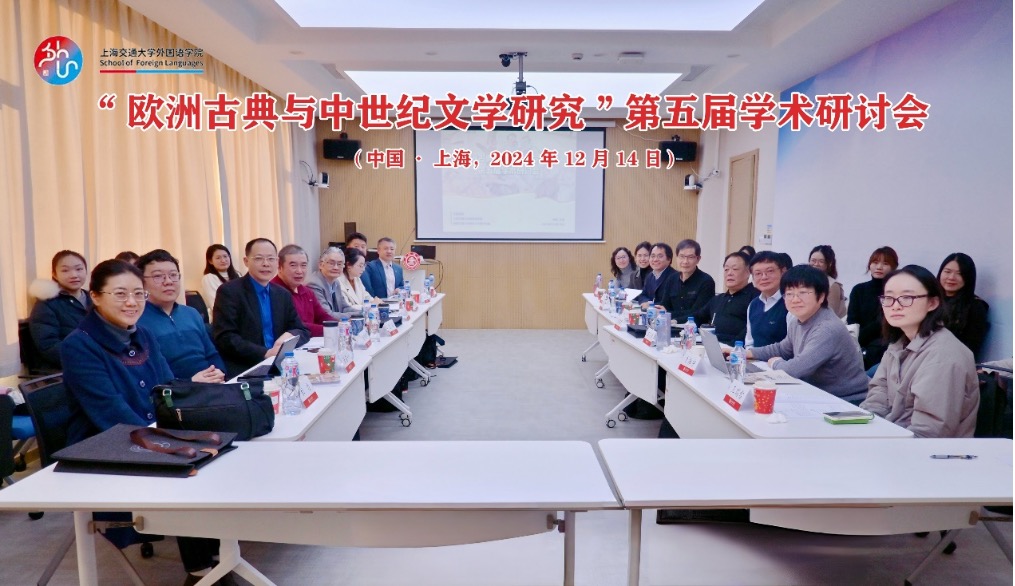
The opening ceremony and the keynote speeches of the first half of the seminar were chaired by Professor Yang Mingming from the School of Foreign Languages, Shanghai Jiao Tong University.
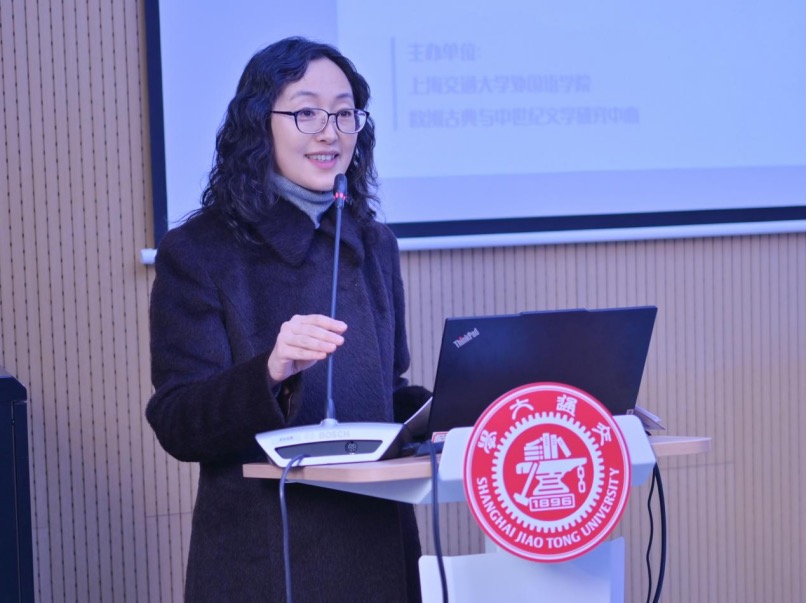
The Dean of the School of Foreign Languages, Shanghai Jiao Tong University, Shang Biwu, delivered the opening speech, extending a warm welcome and sincere thanks to the participants. He emphasized the important significance of classical studies for the inheritance of human civilization and the mutual learning between Chinese and foreign cultures. He expressed his hope that the excellent reports from the attending experts and scholars would offer new methods and ideas for the research of European classical and medieval literature, and wished the seminar great success.
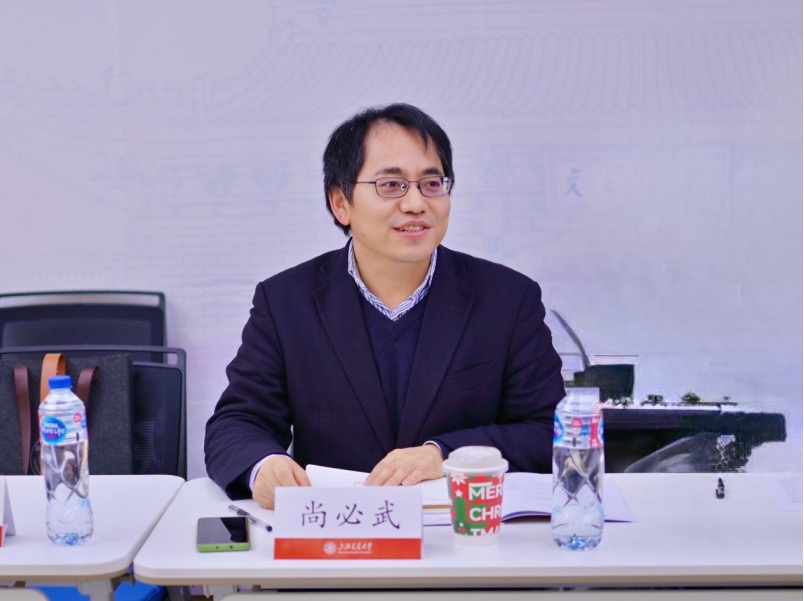
Liu Jianjun, a distinguished professor at Shanghai Jiao Tong University, emphasized the importance of Greek culture in social transformation. He pointed out that different cultural interpretations of Christianity led to divisions among European countries and regions, including cultural and religious fractures, political opposition between Eastern and Western Europe, ideological differences, modern Europe's disharmony, and disparities in economy and education.
.jpg)
Wang Lixin, Chair Professor at Southern University of Science and Technology, offered a rich and unique interpretation of the characteristics, texts, concepts, and significance of Hebrew mythology. He pointed out that Hebrew myth narratives are a "revised and compiled" textual system, accompanied by the concept of Hebrew monotheism. He summarized the overall structure and basic concepts of Hebrew mythology, clarifying the thread of "God's creation — human rebellion — God's salvation", as well as the tense relationship between God's demands on humans and their disobedience to God's laws.
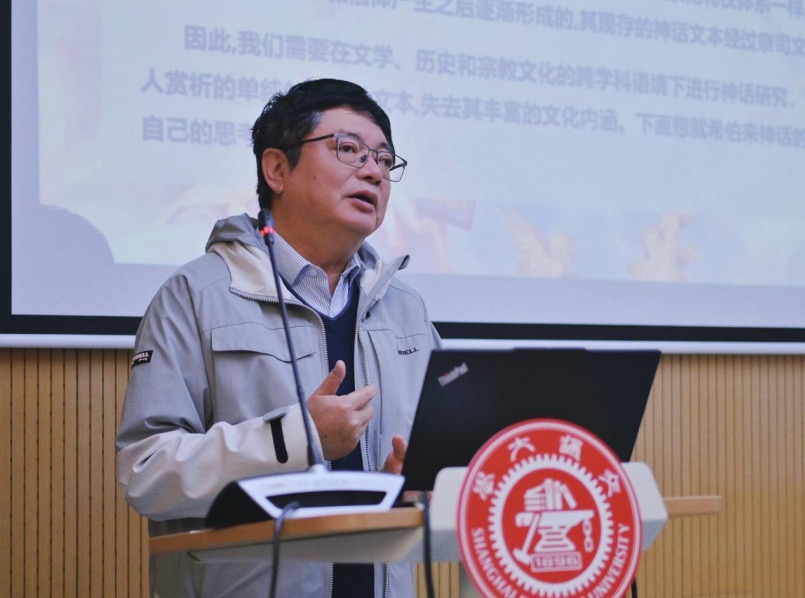
Jiang Chengyong, a senior professor in the Humanities at the Zhejiang University of Commerce, deeply explored "The Classical Light of Medieval Literary Culture". He discussed how classical culture was inherited and influenced the development of Western civilization and science within the context of medieval Christian culture. He pointed out that the classical cultures of ancient Greece and Rome did not cease during the medieval period, but continued in the form of the "classical light", which later shone even more brightly during the Renaissance. He emphasized that studying this inheritance is particularly important for Chinese scholars, as it helps to deepen the understanding of the roots of Western culture and science.
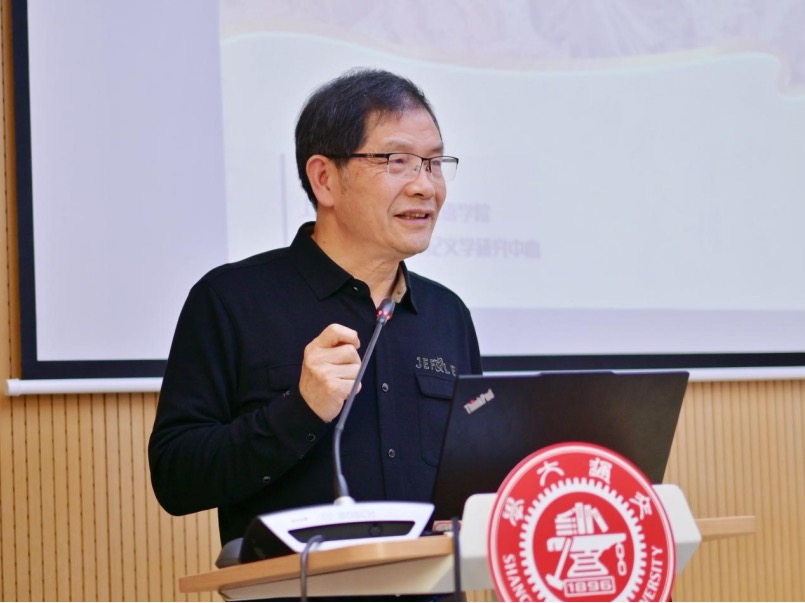
Professor Luo Guoxiang from Wuhan University delivered a speech titled "The Spirit of Freedom in Medieval Law and Literature and Its Connections". He began by discussing the cultural origins of China and Europe, and, drawing on the traditions of medieval literature and jurisprudence, explored the representation and development of the ideals of freedom, equality, and fraternity within these fields.
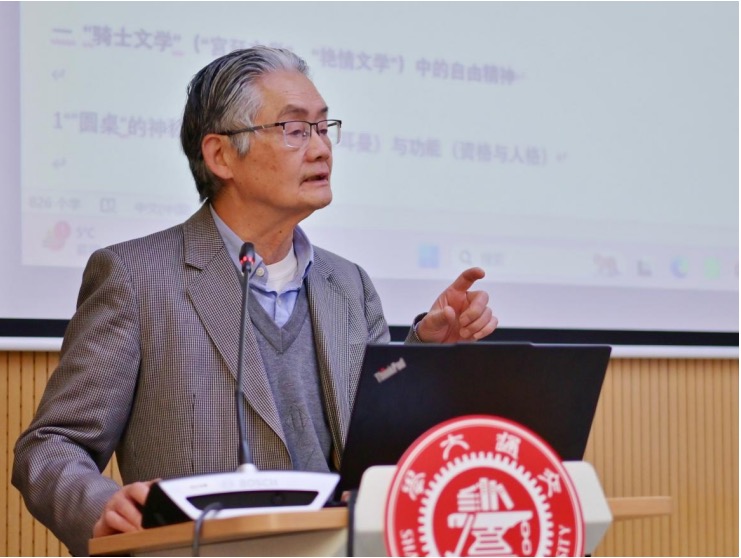
Professor Shen Hong from Zhejiang University delivered a speech titled "On the Prosody and Charm of Old English Alliterative Verse—A Brief Analysis of the Battle Scene between Beowulf and Grendel". In his presentation, he comprehensively analyzed the unique value of Old English poetry and its position in the development of English and American literature, from language features and poetic forms to specific literary works. He pointed out that Old English poetry is not only the source of English and American literature but also an important link in the transmission of medieval literature and classical civilization.
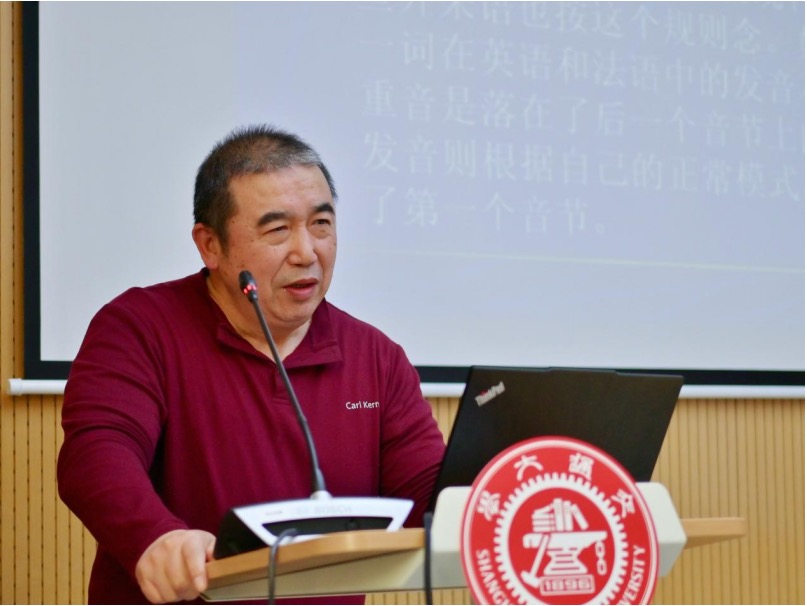
Associate Professor Tang Yili, a tenured faculty member at Shanghai Jiao Tong University, chaired the keynote speeches in the second half of the seminar.
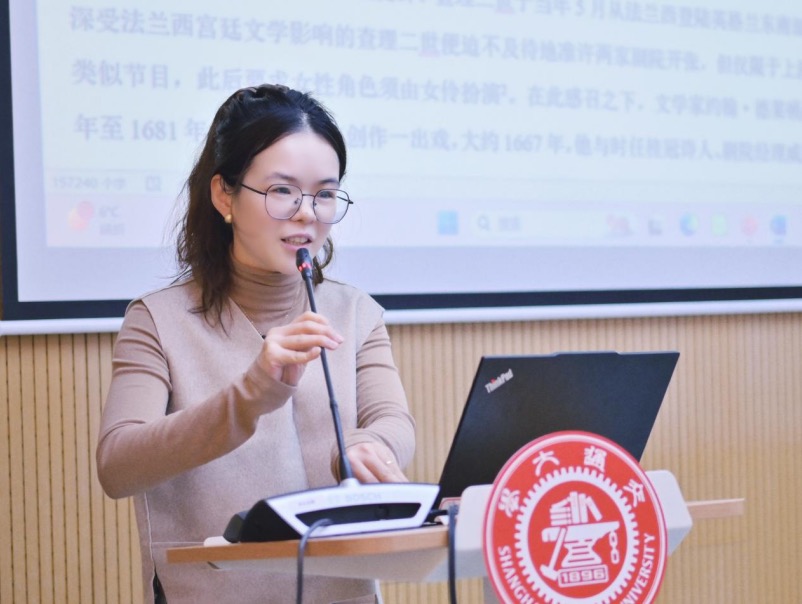
Professor Xu Xiaodong from Hangzhou Normal University delivered a speech titled "'Golden Ointment'—From Magic to Quantum Entanglement". Adopting an interdisciplinary perspective, he systematically explored the cultural and historical background of the "golden ointment" and its symbolic significance in literature and science, ranging from literature and philosophy to natural science. He emphasized that academic research needs to balance macro narratives with micro details, as micro-level studies often provide solid data support for broader trends.
.jpg)
Professor Ou Chenyanxu from Northeast Normal University delivered a speech titled "The Historical Truth and Literary Imagination of the Blood Eagle Ritual: The Dual Aspects of Ritualized Violence in Medieval Nordic Literature". From multiple perspectives, including history, literature, culture, and sociology, he explored the authenticity of the "blood eagle" punishment, a phenomenon in Nordic culture, and its symbolic significance in later generations.
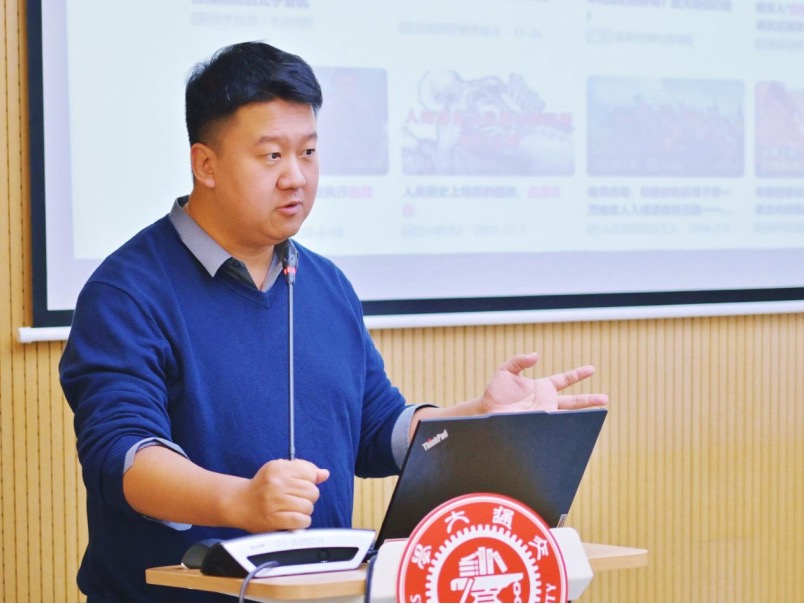
Professor Luo Feng from East China Normal University delivered a speech titled "Fate and the Ethics of War in Euripides' Hecuba". He deeply analyzed the play from multiple dimensions, including the text structure of ancient Greek tragedy, ethical discussions, and the symbolic significance of war. He emphasized that Hecuba holds an important position in both classical literature and philosophy, and is not only a key text in ancient Greek tragic literature but also an essential source for exploring the ethics of war and human nature, warranting further in-depth study.
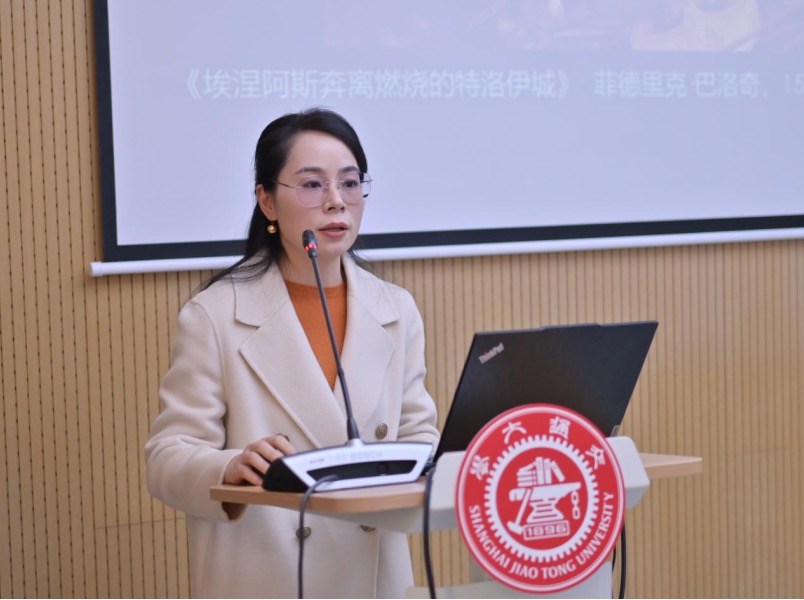
The afternoon session was held in the form of a roundtable forum, chaired by Associate Professor Ding Yao, a tenured faculty member at the School of Foreign Languages, Shanghai Jiao Tong University.
Associate Professor Wang Shaohui from Northeast Normal University delivered a speech titled "John Tzetzes' The Allegories of the Iliad: Multiple Interpretations of Homeric Metaphors in Byzantine Literature". He offered a unique interpretation of the mythological content in Homer's epics by John Tzetzes and further explored its influence on Western literary tradition. He emphasized that the metaphorical legacy of Homer's Epics is an evolving process, continuously contributing to the framework of later literature and philosophy, providing sustained inspiration for the development of Western culture.
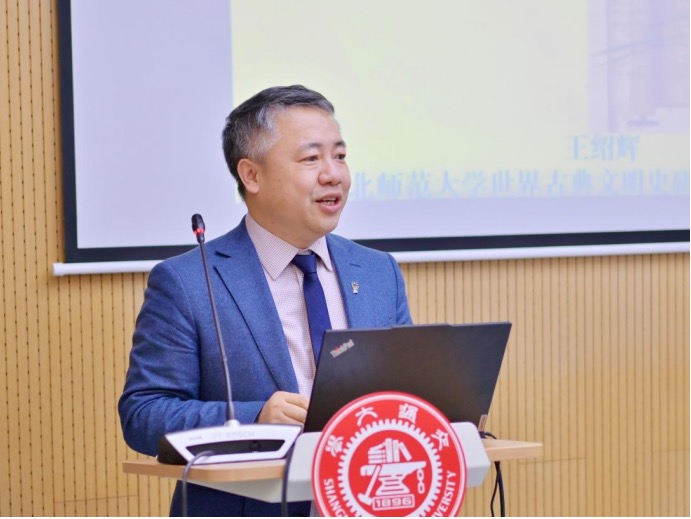
Associate Professor Zhu Zhenyu from Zhejiang University delivered a speech titled "The 'Transformation of Reality and Illusion' in Allegorical Writing in The Divine Comedy". He explored the uniqueness of allegorical writing and the evaluation and interpretation of classical works from a comparative cultural perspective. He emphasized that the study of comparative literature should move beyond a single cultural framework and reexamine the significance of classical works from a broader intellectual history perspective.
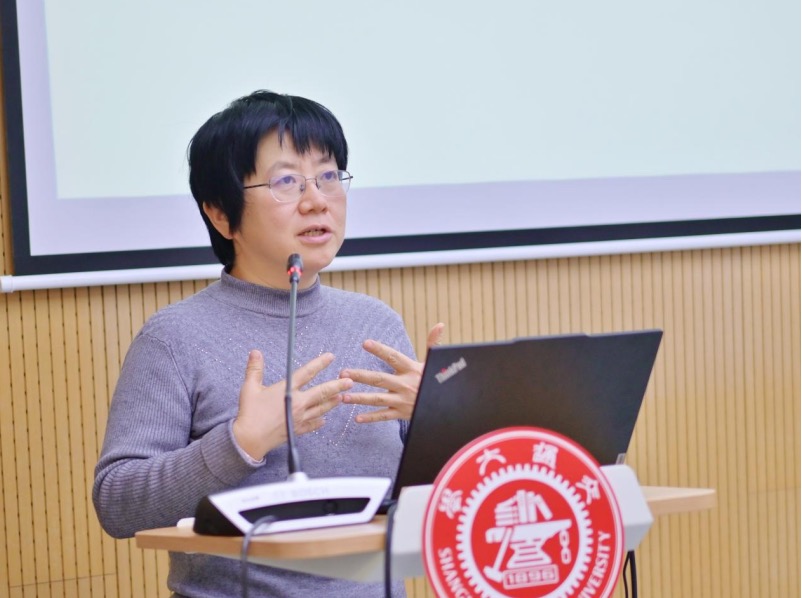
Associate Professor Wang Ruixue from Sun Yat-sen University delivered a speech titled "Suffering and Inquiry Under the Sun: The Aesthetic of Ancient Greek Tragedy from the Perspective of Theater Space." She pointed out that tragedy, compared to epic poetry, is more rationalized. Its content, spanning both private and public dimensions, is closely tied to city-state life, yet also transcends the limitations of city-state existence. She emphasized that it is only through the tension between historicity and transcendence that one can fully understand the cultural significance of ancient Greek tragedy.
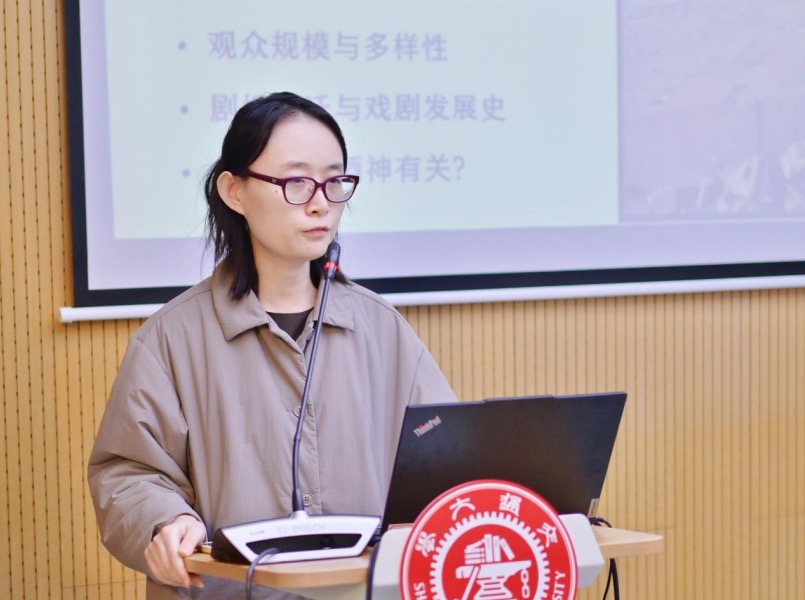
Associate Professor Zhang Ruoyi from Shanghai International Studies University delivered a speech titled "The Knowledge Genealogy and Cultural Origins of Hebrew Wisdom Literature". From the perspective of cultural matrices, she explored the relationship between Hebrew wisdom literature and the ancient Mediterranean region's cultures, particularly the influence of the Mesopotamian tradition on Hebrew wisdom literature. She pointed out that this cross-cultural exchange and borrowing demonstrate that Hebrew wisdom literature was not entirely independent but deeply rooted in the cultural soil of the ancient Mediterranean region.
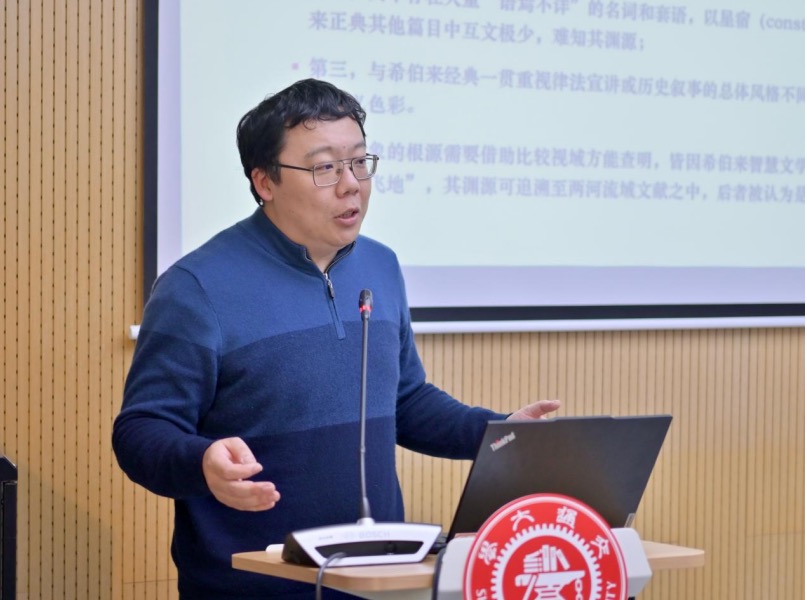
Assistant Researcher Du Li from Shanghai International Studies University delivered a speech titled "The Reflections and Defenses of Female Humanist Scholars in Medieval Monasticism". Focusing on the letters of Heloise, a female scholar from the 12th-century Renaissance, she explored Heloise's significant contributions in the realms of culture, ethics, and religion. Du argued that Heloise's letters reflect a profound integration of the classical academic tradition and Christian humanism during the 12th-century Renaissance, showcasing a transcendent intellectual elevation that transcended her time.
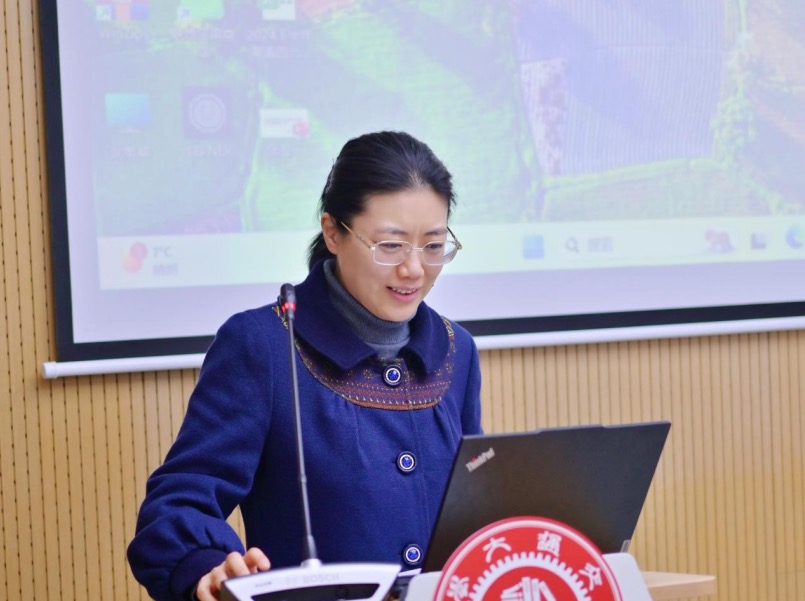
Associate Professor Ding Yao from Shanghai Jiao Tong University focused her speech on Quintus' Trojan Epic, examining the work's inheritance and reconstruction of Greek culture, as well as its influence on Roman societal thought. She pointed out that the secularization of heroism and the de-extremization of emotional expression reflects the author's desire for a diverse, integrated, and stable imperial cultural environment, which in turn is seen as a hallmark of post-classical literature.
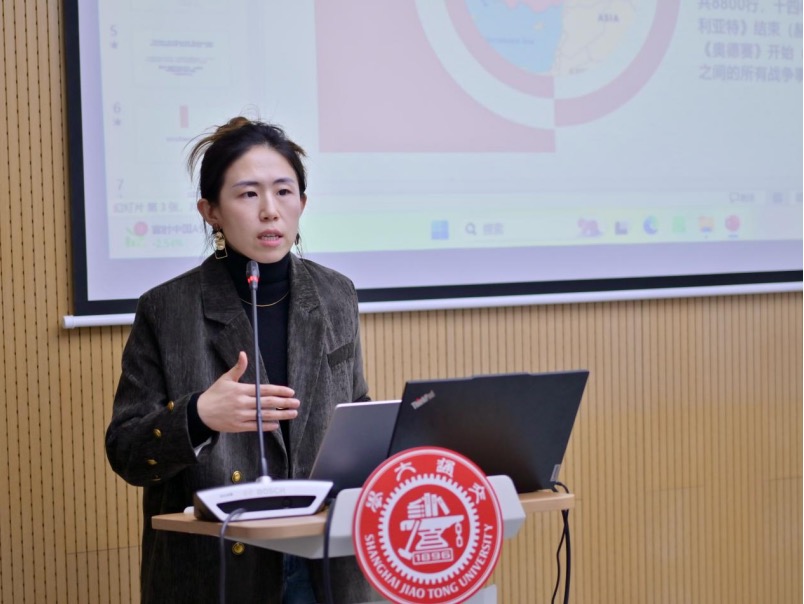
In the closing remarks, Liu Jianjun summarized and highly praised the fruitful outcomes of the conference, once again expressing sincere gratitude to the participants. He also offered full recognition and earnest hopes for the young scholars. He believed that the involvement of young scholars not only injects new vitality into classical literature research but also serves as an important symbol of cultural inheritance and development. Liu Jianjun emphasized that in the study of classical studies, it is essential to focus not only on the texts themselves but also on their broader social and cultural contexts, to contribute more wisdom and strength to societal development through the continuous progress of academic research.
